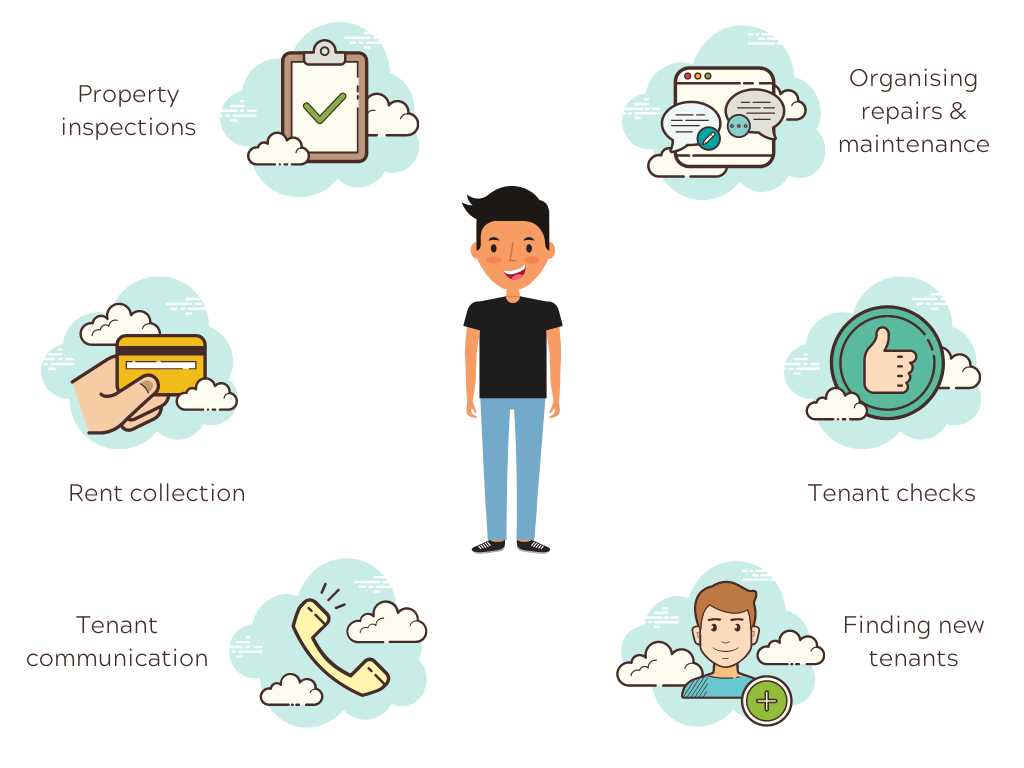Property Management: Definition, Roles, Types, and Duties

Property management is a crucial aspect of real estate investing. It involves the management and oversight of residential, commercial, or industrial properties on behalf of the property owner. The property manager acts as a liaison between the owner and tenants, ensuring that the property is well-maintained, tenants are satisfied, and financial goals are met.
Definition
Roles and Responsibilities
The property manager has several key roles and responsibilities. These include:
- Tenant Acquisition: The property manager is responsible for finding and screening potential tenants. This involves advertising vacancies, conducting background checks, and selecting qualified tenants.
- Rent Collection: Collecting rent from tenants and ensuring timely payments is another important duty of a property manager. They may also handle late payments and initiate eviction proceedings if necessary.
- Maintenance and Repairs: Property managers are responsible for ensuring that the property is well-maintained. This includes handling repairs, scheduling routine maintenance, and addressing any issues that may arise.
- Financial Management: Property managers are responsible for managing the property’s finances. This includes budgeting, bookkeeping, and providing regular financial reports to the owner.
- Legal Compliance: Property managers must ensure that the property complies with all relevant laws and regulations. This includes fair housing laws, building codes, and lease agreements.
- Tenant Relations: Building and maintaining positive relationships with tenants is crucial. Property managers must address tenant concerns, handle complaints, and ensure tenant satisfaction.
Types of Property Management

There are various types of property management, including residential, commercial, and industrial. Residential property management involves managing rental properties such as apartments, houses, and condominiums. Commercial property management focuses on office buildings, retail spaces, and warehouses. Industrial property management involves managing industrial facilities and properties.
Property management is a vital aspect of real estate investing. It involves the operation, control, and oversight of real estate properties. The main goal of property management is to ensure that the properties are well-maintained, profitable, and meet the needs of both the property owners and tenants.
Property managers play a crucial role in the success of real estate investments. They act as intermediaries between the property owners and tenants, handling various responsibilities to ensure the smooth operation of the properties.
One of the key duties of property managers is to market and advertise vacant properties to attract potential tenants. They utilize various marketing strategies, such as online listings, signage, and networking, to reach a wide audience and fill vacancies quickly. Once potential tenants show interest, property managers conduct thorough screenings to select reliable and responsible tenants.
Property managers are also responsible for setting and collecting rent. They determine the appropriate rental rates based on market trends, property location, and amenities. They also handle rent collection, ensuring that tenants pay on time and taking appropriate action if there are any late payments or non-payments.
Maintaining the properties is another crucial aspect of property management. Property managers coordinate repairs, maintenance, and renovations to ensure that the properties are in good condition. They handle routine maintenance tasks, such as landscaping, cleaning, and pest control, as well as address any issues or emergencies that may arise.
Financial management is also a part of property management. Property managers handle the financial aspects of the properties, including budgeting, accounting, and financial reporting. They keep track of income and expenses, prepare financial statements, and provide regular reports to the property owners.
Roles and Responsibilities of Property Managers
Property managers play a crucial role in the real estate industry. They are responsible for overseeing the day-to-day operations of properties, ensuring they are well-maintained and profitable. Here are some of the key roles and responsibilities of property managers:
1. Rent Collection: One of the primary responsibilities of property managers is to collect rent from tenants. They ensure that tenants pay their rent on time and handle any late payments or issues that may arise. They also set rental rates and adjust them as necessary to ensure maximum profitability for the property owner.
2. Tenant Screening and Selection: Property managers are responsible for finding and selecting suitable tenants for rental properties. They conduct background checks, verify employment and income, and check references to ensure that tenants are reliable and able to pay rent on time. They also handle the leasing process, including drafting and signing lease agreements.
3. Property Maintenance: Property managers are responsible for ensuring that properties are well-maintained and in good condition. They coordinate repairs and maintenance tasks, such as fixing plumbing issues, repairing appliances, and addressing any structural problems. They also conduct regular inspections to identify any maintenance needs and address them promptly.
4. Marketing and Advertising: Property managers are responsible for marketing and advertising rental properties to attract potential tenants. They create listings, take photographs, and promote properties through various channels, such as online platforms, social media, and local advertisements. They also show properties to prospective tenants and answer any questions they may have.
5. Financial Management: Property managers handle the financial aspects of property management, including budgeting, accounting, and financial reporting. They keep track of income and expenses, prepare financial statements, and provide regular reports to property owners. They also handle security deposits and ensure compliance with financial regulations and laws.
6. Tenant Relations: Property managers act as a point of contact for tenants and handle any issues or concerns they may have. They respond to maintenance requests, address complaints, and mediate disputes between tenants. They strive to maintain positive relationships with tenants to ensure tenant satisfaction and retention.
7. Legal Compliance: Property managers must ensure that rental properties comply with all applicable laws and regulations. They stay updated on local, state, and federal laws regarding property management and rental properties. They handle evictions, if necessary, and ensure that all lease agreements and property operations are in compliance with legal requirements.
Overall, property managers play a vital role in the success of rental properties. They handle various responsibilities to ensure that properties are well-maintained, profitable, and in compliance with all legal requirements. Their expertise and knowledge in property management are essential for property owners looking to maximize their investments.

Emily Bibb simplifies finance through bestselling books and articles, bridging complex concepts for everyday understanding. Engaging audiences via social media, she shares insights for financial success. Active in seminars and philanthropy, Bibb aims to create a more financially informed society, driven by her passion for empowering others.
